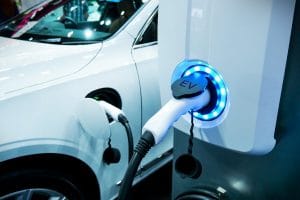Suzuki Motor, parent of automaker Maruti Suzuki, announced that it would invest Rs 10,440 crore to build a new electric car and battery factory in India. Maruti Suzuki is expecting to roll out affordable EV models in both Japan and India as early as 2025.

The Japanese automaker intends to invest around Rs 3,000 crore for the new plant to increase production of electric vehicles in India, and Rs 7,300 crore to manufacture electric batteries. The announcement is the first firm commitment to electrification by the company, which has maintained that the Indian market isn’t ready for EV sales yet.
Maruti’s rivals, such as Hyundai and Tata Motors, have announced elaborate plans for electrification of their products. Sales of four-wheel EVs jumped in India in FY21, the impact of the pandemic notwithstanding.
The segment saw an estimated 5,500-6,000 sales last financial year – a jump of 60-75 per cent over FY20 when the segment saw sales of 3,400 units.
But Suzuki through its global tie-up with Toyota has been gearing up to enter the non-IC engine vehicle business and India will be a key part of this plan. Their Indian subsidiaries are Suzuki Motor Corporation (Maruti Suzuki) and Toyota Motor Corporation (Toyota Kirloskar Motors).
People aware of the development said that both companies are working to develop a mass EV product, which besides for the Indian market, will be exported to Europe and South Asian countries.
“Investing so much money in the Indian market is not justified as there are still doubts how much the domestic market will grow for EVs. It has to be for export, too,” said a person in the know. “Suzuki’s future mission is to achieve carbon neutrality with small cars,” said Toshiri Suzuki, president of Suzuki Motor Corporation.
The new plant will be set up near the existing Suzuki’s plant in Gujarat. The plant is owned by Suzuki Motor Gujarat (SMG), a 100 per cent subsidiary of Suzuki Motor Corporation and supplies to Maruti. It recently started a new production line which increased its annual production to 750,000 units.
Suzuki has already developed a Lithium-Ion battery pack production unit in a joint venture with Japanese companies Denso Corp and Toshiba at Hansalpur in Gujarat. The manufacturing is set to start by this year. Lithium cells are considered the heart of an electric vehicle and currently most EV makers buy batteries and cells from China, the world’s largest producer of Li-ion cells.
With a large part of the production localised, the industry expects that Maruti to able to market an electric car at cheaper price than its competitor. The highest selling electric vehicle Tata Nexon currently starts at Rs 14.5 lakh in New Delhi.
From 2021 to 2025, Suzuki intends to spend a total of 2.2 trillion yen on research and development and capital investment. Of the total, about 1 trillion yen will go into R&D, most of which will be earmarked for development of EVs.












